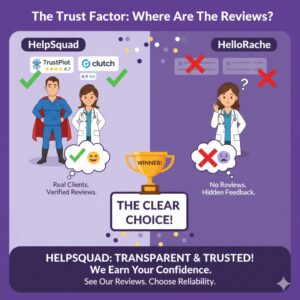Boosting Sales and Data Management with CRM Software
31 Jul 2018 By: Maria Rush
Updated
Is your business struggling to keep up with the demands of today’s competitive market? A CRM software might be the solution you need. Using CRM helps businesses improve sales, manage data, and achieve success. This article covers CRM basics, its impact on sales and data, and important factors when selecting and implementing a CRM system.

Understanding the Role of CRM Software in Business
CRM software, short for customer relationship management, helps manage and nurture customer relationships. It drives sales and improves business performance. CRM software, such as Zoho CRM and Salesforce, integrates technology, processes, and people. It helps businesses engage with customers, track interactions, and optimize sales and marketing.
What does CRM software include? Let’s explore its functions and its role in sales and data management.
It gives businesses insights into customer preferences, buying behavior, and trends. This helps tailor sales strategies to meet individual needs. The result? Happier customers and more sales.
Defining CRM and Its Core Functions
CRM software blends technology and human elements to manage customer relationships throughout their lifecycle. It captures, stores, and analyzes data to improve communication and decision-making. Key functions include:
- Contact Management: Tracks and organizes customer info for better engagement.
- Sales Force Automation: Streamlines lead management, opportunity tracking, and sales forecasting.
- Marketing Automation: Automates campaigns, email marketing, and lead nurturing.
- Customer Service and Support: Manages inquiries and support tickets, ensuring quick resolutions.
- Analytics and Reporting: Analyzes data to find insights, track performance, and measure strategy effectiveness.
Each function boosts customer relationships and business growth. Contact management tracks interactions, preferences, and purchase history. This enables personalized communication. Sales force automation cuts repetitive tasks, letting teams focus on relationships and closing deals.
Marketing automation drives targeted campaigns, guiding leads through the sales funnel. Customer service and support ensure fast, reliable help, building loyalty and satisfaction.
The Intersection of CRM, Sales, and Data Management
CRM software and sales are closely linked. CRM software gives sales teams the tools and data to streamline the sales process. It improves forecasting and supports data-driven decisions. By centralizing customer information, CRM software helps manage leads, track opportunities, and prioritize tasks.
Data management is key to CRM software. It ensures customer data accuracy and integrity. A centralized CRM system eliminates silos, reduces duplicates, and enforces data quality. This enables informed decisions, better customer experiences, and sales growth.
Trending Now
CRM tools have evolved significantly, offering essential features for managing sales and customer data. To get the most from CRM software, choose a platform that fits your business needs. Customize it to match your processes, and regularly audit and clean data to maintain integrity. Set clear goals, like improving sales tracking and customer segmentation. Use automation and analytics to boost decision-making and customer satisfaction. Proper implementation and ongoing training are crucial to ensuring your CRM delivers the best results.
Enhancing Sales Performance with CRM Software
Adopting CRM software can greatly boost sales by streamlining processes, improving forecasting, and enabling better decision-making. Here’s how CRM benefits sales teams.
Streamlining Sales Processes through CRM
CRM software automates key sales tasks, helping teams work efficiently and boost productivity. It allows sales professionals to easily manage and track leads from the first contact to closing. CRM software enables assigning and prioritizing leads, improving qualification, and monitoring the entire pipeline. This ensures timely follow-ups and higher conversion rates in the customer journey.
But that’s not all. CRM software offers advanced features that change how sales teams work. Many CRM platforms include email marketing tools. Reps can send personalized emails directly from the CRM. This saves time and targets the right audience, increasing leads and closing more deals.
CRM software also provides real-time insights into customer interactions. This leads to more informed conversations and personalized solutions. It builds trust, strengthens relationships, and drives sales success.
CRM’s Impact on Sales Forecasting and Decision Making
Accurate sales forecasting is vital for resource allocation, target setting, and planning. CRM software offers powerful analytics and reporting tools. Sales teams can create reports, track metrics, and forecast sales using past data. This helps managers make data-driven decisions, set goals, and improve strategies.
CRM software benefits go beyond forecasting. Advanced systems use AI and machine learning to analyze large customer data sets. This uncovers patterns and trends, offering insights into customer behavior. With this knowledge, sales teams can tailor their approach. Personalized pitches boost deal closures and drive revenue growth.
Moreover, CRM software identifies sales trends like seasonal shifts or changing customer preferences. This helps businesses adjust their sales and marketing strategies. By staying ahead of market changes, sales teams can adapt to keep their competitive edge.
Leveraging CRM for Effective Data Management
Effective data management using management software ensures customer information is accurate, secure, and accessible. CRM software offers strong features to support data collection, organization, and maintenance.
Data Collection and Organization in CRM
CRM software consolidates customer data from sources like websites, emails, social media, and customer service. This complete view helps businesses create detailed customer profiles, segment their audience, and develop targeted campaigns.
CRM systems also allow data organization with customizable fields, tags, and categories. These tools help categorize data by attributes, preferences, or behaviors. This structured approach ensures easy access and better analysis. To support data-driven operations and scalable feature enhancements, businesses often engage nearshore software outsourcing, enabling access to experienced development teams at competitive rates.
Ensuring Data Quality and Security with CRM
Data integrity and security are crucial in managing customer information. CRM software enforces data validation rules to ensure quality and prevent duplicates or errors. By maintaining data standards, businesses improve data reliability and make better decisions.
CRM platforms also offer strong security measures like user authentication, role-based access, and data encryption. These features protect sensitive customer information from unauthorized access. This security builds trust and confidence among customers.
Choosing the Right CRM for Your Business
When choosing a CRM system, it’s important to match it with your needs and goals. With many options available, making an informed choice is key. Here are essential features to consider:
Key Features to Look for in a CRM System
- Intuitive User Interface: Choose a CRM with a user-friendly interface that requires little training.
- Scalability: Select a CRM that can grow with your business, handling more data and users over time.
- Integration Capabilities: Ensure the CRM features
integrate with your existing tools, like email, marketing automation
, and support systems. - Mobile Accessibility: Pick a CRM that offers mobile access, letting your team view customer data and features on the go.
- Customization Options: Look for a CRM that allows custom fields, workflows, and reports to fit your business processes.
Tailoring CRM Solutions to Your Business Needs
Every business is unique, so one-size-fits-all CRMs may not work. It’s crucial to pick a CRM that fits your specific needs. Look for platforms that offer flexible customization. Choose one that allows custom fields, business rules, and workflows. This ensures the CRM aligns with your processes and goals.
Implementing CRM for Business Success
Choosing the right CRM is important, but successful implementation is key to maximizing its benefits. Here are steps for a successful CRM implementation:
Steps to Successful CRM Implementation
- Set Clear Goals: Define objectives, such as boosting sales, improving customer satisfaction, or optimizing marketing.
- Engage Key Stakeholders: Involve sales, managers, and IT in the process. Their input ensures a smooth rollout.
- Plan and Prepare: Create a detailed plan, including data migration, training, and testing. Proper preparation reduces challenges.
- Ensure User Adoption: Offer thorough training and support. Encourage users to see the value and adopt the CRM system.
- Monitor and Refine: Regularly check CRM performance, gather feedback, and make improvements as needed.
Overcoming Common CRM Implementation Challenges
Despite its benefits, CRM implementation can bring challenges. Addressing them early is key to success:
- Lack of User Adoption: Resistance or poor training can hurt adoption. Ensure users understand CRM benefits and offer strong support during the transition.
- Data Quality Issues: Inaccurate data weakens CRM. Use data validation rules and set quality standards to maintain accurate customer information.
- Insufficient Integration: Poor integration with existing tools can reduce productivity. Choose a CRM with strong integration to streamline workflows.
- Scalability Concerns: A CRM that can’t grow with your business may become a problem. Select a solution that can scale with your future needs.
Conclusion
In conclusion, CRM is a powerful tool for improving sales and managing customer data. By understanding CRM, leveraging its features, and choosing the right system, you can boost performance, improve data management, and drive business success.
Ready to take your sales and data management to the next level? HelpSquad BPO is here to supercharge your CRM efforts with our dedicated virtual assistants and 24/7 customer service team. Experience the difference with bilingual agents skilled in customer support, back-office tasks, and research—all starting at an affordable $8.50 per hour. Don’t miss out on the opportunity to enhance your business’s efficiency and customer satisfaction. Start your trial today and watch your business soar with HelpSquad BPO!r data.


